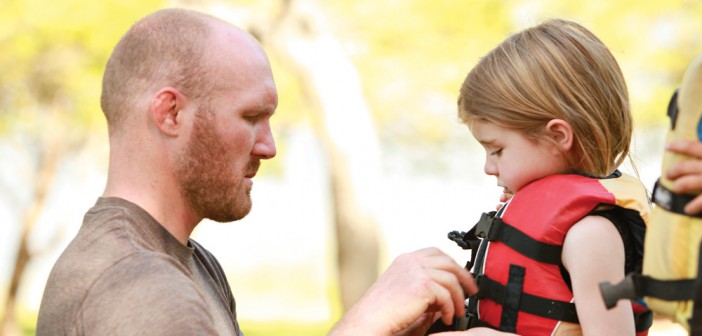Every year, aquatics-based activities bring tens of thousands of people to the water – along with thousands of preventable injuries. Swimming, boating, fishing and kayaking are a few of these activities that can and should be safe, if you follow a few preventive measures.
According to the Centers for Disease Control (CDC), an average of ten people every day will die from an unintentional drowning injury. Twenty percent of those victims are children age 14 and younger. Drowning is the second leading cause of unintentional injury-related death in children. Those who survive often suffer long-term disability or brain damage.
When investigating drowning cases over the years, two common reasons are alcohol use and failure to wear personal flotation devices. Alcohol is involved in over 65 percent of drownings, and in many of these instances, the victim was not wearing a U.S. Coast Guard-approved personal flotation device (PFD).
Other risk factors involve swimming ability, a seizure disorder, lack of close supervision and lack of safety devices (e.g., fences, pool alarms).
Summer is here, and if we follow these simple, common sense tips, we can enjoy it safely.
One of the easiest and most effective ways to stay safe on your kayak, in your boat or fishing (even off a dock) is to wear a PFD. Life jackets save lives, period. If you are wearing a PFD and slip and fall off a dock, or accidentally fall in the water, for example, this will keep you afloat until rescuers arrive to help.
Here are few more water safety tips everyone should practice:
- Avoid alcohol consumption while around water. Alcohol impairs judgment, balance and coordination; it affects swimming and diving; and it reduces the body’s ability to stay warm.
- For children, designate an adult “watcher” to supervise them at all times and make sure kids are wearing a PFD at all times when in or around water. If kids grow up knowing the importance of wearing a PFD, it will become a lifetime habit. Never leave a child unattended near the water, even for a minute or two.
- Establish family “water rules” and enforce them. Even if you do not plan on swimming, everyone always should be cautious around natural bodies of water. Currents and underwater hazards often can make a fall very dangerous.
- Teach children water safety and swimming skills as early as possible.
- Don’t get too tired, too cold, or too far from safety.
- Don’t take chances by overestimating your swimming skills.
- Install a pool alarm by your pool to alert you if someone is in the water. Better yet, have a self-latching, self-closing gate. The latch should be high enough to be out of reach of small children.
- Always swim with a buddy. Do not swim alone.
Summer is here, and if we follow these simple, common sense tips, we can enjoy it safely.














